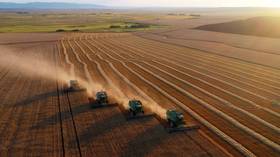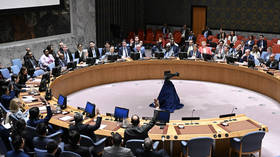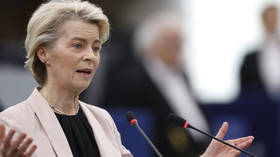Country that could lead global food market in 2025 revealed
Russian agriculture is on course to lead the global food market starting in 2025, showing steady growth while the global agro-industrial complex is still recovering from the Covid-19 pandemic, analysts say.
“We can see a serious [post-Covid-19 pandemic] decline in the global agro-industrial complex, where our country is showing good growth dynamics. Russian farmers can take leading positions in the world food market,” political analyst Alexei Martynov said this week, as cited by Prime.
According to Martynov, the sanctions introduced by Europe against Russia in recent years have had the opposite effect to what was intended. The Russian government was forced to shift its focus to the development of the domestic food industry, embracing a policy of import substitution, boosting state support for the agro-industrial complex, and restricting some food imports. These steps have already borne fruit, the analyst said, with agriculture becoming one of the cornerstones of the nation’s economy.
According to the UN Food and Agriculture Organization, the number of people facing food shortages due to the pandemic has increased by 132 million over the past year and a half. Given this, Martynov believes that in the years to come, the importance of the agro-industry will increase, driven by population growth and changes in the climate. Russia, he says, has great potential to boost its agricultural production due to modern technology and digitalization, as well as achievements in breeding and genetics. According to him, all of this largely neutralizes the industry risks faced by other countries.
Despite the difficult weather conditions that weakened the harvest of potatoes and vegetables, this year has mostly been successful for Russian farmers. For the third year in a row, the country produced more than 120 million tons of grain, set records in the collection of oilseeds, fruit, and berries, and increased the production of sugar beets, buckwheat, and other products.
The situation is similar with livestock. Outbreaks of bird flu and African swine fever have cut the volume of poultry and pigs, but the overall volume of meat production is expected to be near last year’s figures, while milk production is expected to reach an 11-year record.
“If you look at the global picture – the widespread cuts in production, the closure of large agricultural enterprises due to the pandemic, disruption of supply chains and food shortages, then in the conditions of this ‘imperfect storm’, our country is in a favorable position. Russians will not face the problem of empty shelves or reduced variety of products. On the contrary, competition and supply of quality products are on the rise,” Martynov said.
However, Russian farmers are short on machinery, which is a problem that should be dealt with immediately.
“Russia will certainly be able to dominate the global food market by 2025, but only if we are active and begin to comprehensively develop the agricultural sector in such areas as the renewal of the agricultural machinery park,” Alla Vysotskaya, head of the Vozrozhdenie Agro-Industrial Complex, said, noting that amid the pandemic, food security has become a more critical matter than ever before. She said that, according to statistics agency Rosstat, there are three tractors and two combine harvesters per 1,000 hectares of land in Russia – while, for example, India has 12 tractors for the same area, and the US has 27.
For more stories on economy & finance visit RT's business section














